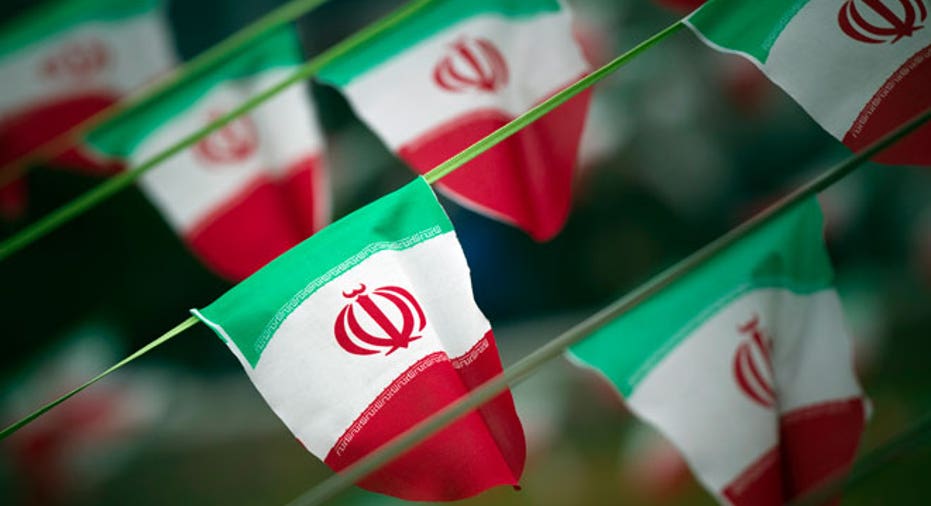The Real Reason Iran Wants to Keep the Nuclear Deal

China isn’t the only foreign country keeping a watchful eye on President-elect Donald Trump. Tensions are mounting between Tehran and the United States as Iranian President Hassan Rouhani becomes increasingly worried about Trump’s intentions to can the Obama administration’s nuclear deal.
In an address at the University of Tehran, President Rouhani said "Do you think the United States can rip up the JCPOA (the Joint Comprehensive Plan of Action nuclear deal)? Do you think we and our nation will let him do that?"
The Iranians received a windfall of money when the agreement was enacted in January 2016. The deal lifted sanctions on the oil-producing regime, and unfroze $150 billion in Iranian assets. Not to mention the $1.7 billion in cash the Obama administration sent to Iran early this year, $400 million of which coincided with the release of four American prisoners.
Last week the Senate voted 99-0 to pass a bill extending the Iran Sanctions Act by another ten years. The measure allows the U.S. to maintain its ability to financially punish Iran should it violate terms of the controversial nuclear deal, a verdict that was quite unpopular among the Iranians.
Upon hearing of the Senate’s decision, Tehran reportedly resorted to a vote of its own on Sunday, to ban "the purchase of U.S. consumer goods including animal and agricultural products."
“This kind of back and forth is unusual,” Jim Phillips, senior research fellow for Middle Eastern affairs at the Heritage Foundation told FOXBusiness.com. "Rouhani may be motivated by political considerations, he is running for reelection in May and wants to reassert his anti-American credentials. He also may be trying to drive a wedge between the U.S. and the other members of the P5 & 1 group that negotiated the deal with Iran, by blaming the U.S. for killing the nuclear deal.”
Skepticism among Iran’s leaders and its public may be well-founded; throughout his campaign Trump made it clear he is no fan of the nuclear pact. In fact, he referred to the nuclear deal as “the worst deal ever negotiated” and pledged to “dismantle the disastrous deal with Iran.”
While no one outside of Trump’s burgeoning Cabinet truly knows how he plans to balance the tangled web of challenging international dealings, all signs point to change when it comes to U.S. policy toward Iran. And Iran is not ready to lose all of the benefits it has reaped from the deal over the years, said Christian Whiton, former State Department Advisor from 2003-2009.
“The deal has provided billions of dollars in cash and reduced sanctions to the benefit of the Iranian government, which has historically been the chief exporter of terrorism and the Islamist political ideology,” Whiton, who is also the principal at D.C. International Advisory Firm, said. “The deal failed to end Iran’s nuclear program, and even sanctifies it after a number of years pass. So Tehran got payola and the key parts of a nuclear weapons program in exchange for almost nothing.”
The benefits for Iran go even further, according to Phillips.
“[The nuclear deal] ended Iran’s international isolation; revived the Iranian economy; cleared the way for Iran to import Russian arms; and it did all this without forcing Iran to dismantle key parts of its nuclear infrastructure.”
Trump has made little mention of the Iran deal while outlining his plan of action for his first 100 days in office. Though, one of Trump’s foreign policy advisors, Walid Phares, confirmed he will demand changes to the deal, seemingly softening Trump’s stance on a full renegotiation.
Still, Iran has reason to fear a change in policy, Whiton said.
“Successive U.S. administrations have been soft on Iran. Bush never made them pay for the large number of U.S. troops they killed in Iraq. Obama has fantasized that they are a potential partner. Trump seems more inclined to push back on the theocratic government in Tehran when it harms us.”
And as Trump seeks to pad his Cabinet with hardline Generals known for their resilient reputations, Whiton is hopeful that the United States’ years of weak behavior toward the pugnacious nation is about to change.
“Tehran is afraid they will no longer get away with all of their trademark belligerent activities….General Mattis and General Flynn, who are designated for Secretary of Defense and National Security Advisor respectively, have long expressed concern about Iran and ineffective U.S. policy,” Whiton said.



















